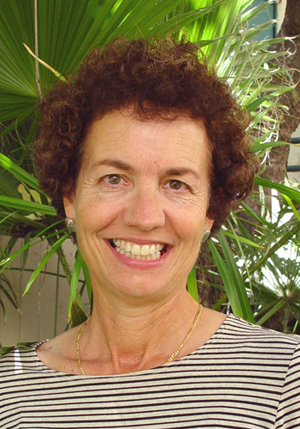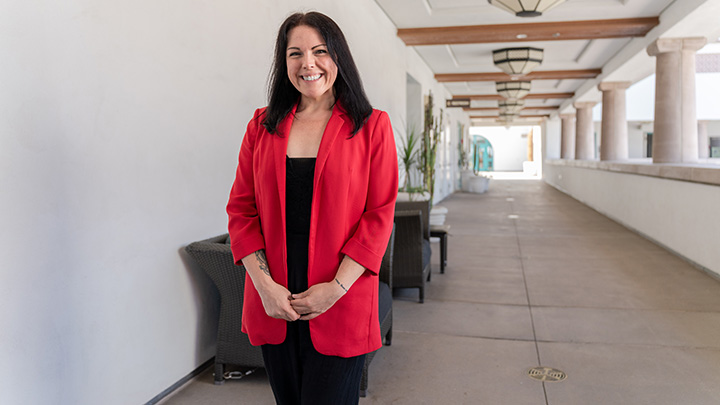Faculty Fulbright to Study Marine Mammals
Annalisa Berta joins a long history of SDSU awardees.

San Diego State has continued to excel in the international research setting, and its Fulbright recipients are just one example of this accomplishment. Joining the ranks of SDSU recipients is biology professor Annalisa Berta, who will study and present lectures and tutorials on the comparative biology of marine mammals at the University of Pisa, Italy, in October.
Providing valuable perspective
“The Fulbright will give me an opportunity to develop a framework for collaborative study on the biology of marine mammals with faculty and students at the University of Pisa,” said Berta, an evolutionary biologist.
“Study of fossil records reveal the effect of changing climates and geography and provides a valuable perspective, as well as lessons, for the future.”
Berta, who has worked at SDSU since 1982, received a Ph.D. from UC Berkeley in 1979 and has since published nearly 85 peer reviewed articles. She currently serves as coordinator of the SDSU-University of California Riverside joint-Ph.D. program in evolutionary biology.

Berta's award demonstrates the global impact of the university, a key initiative of the Campaign for SDSU. Whether it’s the university’s Fulbright scholars, its study abroad opportunities or the international research of its faculty members, SDSU competes on an international level. Learn more about the global reach of SDSU and how you can contribute.
Keeping in line with tradition
She joins more than 50 SDSU faculty members since 1993 who have participated in the Fulbright Scholarship program, which awards U.S. faculty, administrators and professionals grants to lecture and conduct research in a wide variety of academic and professional fields.
In addition, 11 students and alumni received Fulbright Grants for the 2011–2012 academic year, a record number for the university.
For more information on SDSU Fulbright awards, please visit SDSU's Office of International Programs.
About the Fulbright Program
Since its establishment in 1946 under legislation introduced by the late U.S. Senator J. William Fulbright of Arkansas, the Fulbright Program has given approximately 300,000 students, scholars, teachers, artists and scientists the opportunity to study, teach and conduct research, exchange ideas and contribute to finding solutions to shared international concerns.



